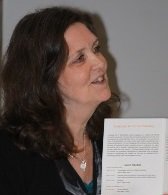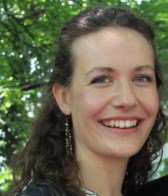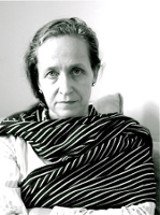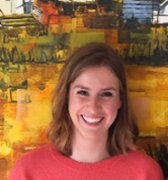
Through my research I seek to create spaces for the encounter between academic research, creativity and new audiences. Translation, and its production in a new time and space, is the medium for this work, and performance is the place for creating new audiences. My most recent research is preoccupied with how ideas and ideologies cross history, how voices from seemingly culturally extreme and distant experiences intervene poignantly in our here and now. By studying the complex processes of movement of the work of dramatists and poets from the Southern Cone to our present, I trace the powerful afterlife of voices that continue to offer languages for our times.

Sophie Stevens, Post-Doctoral Researcher
My research explores how female theatre practitioners from Uruguay act as agents of cultural change in the arts and in society. I focus on theatre and performance created in a diverse range of spaces by analyzing and translating the works of dramatist, Raquel Diana, and performance artist, Hekatherina Delgado. I examine how their work acts both as a way for female practitioners to gain visibility and as way to raise awareness of the experience of women, particularly in relation to gender violence. My project explores how digital platforms enable the work of these artists to enter into dialogue with discourses surrounding women’s rights throughout Latin America and beyond.

At the heart of my research is the relationship between people and the places they inhabit away from home. As Sarah Ahmed suggests, ‘community comes to life through the collective act of remembering in the absence of a common terrain’. Working in collaboration with the community at the Elephant and Castle shopping centre, my aim is to assemble a corpus of testimonies, narrations, and songs that seek to embody the double estrangement this community is currently experiencing in the light of the centre’s imminent demolition. The role of language as a mediating agent in reshaping and re-imagining shared experience is central to this investigation.

Translation is at the core of the anthropological and poetic writing of José María Arguedas. Focusing on two texts from 1938-1948, my research studies Arguedas’s writing as characterised by movement, multiplicity and translation, rather than by genre or discipline. Using translation as a form of close reading, I explore the agency of language and movement of key terms in a collection of articles published in the Argentine newspaper La Prensa (1939-1948). Canto Kechwa (1938), an anthology of translated songs published in parallel text, highlights the presence of the oral indigenous language Quechua on the page. I trace this presence in my research, learning the language myself and developing key concepts and practice through translation and analysis.